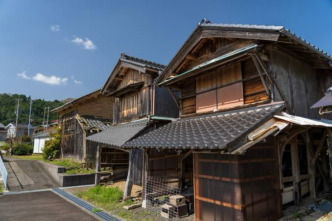Japan has a lot of abandoned houses called “akiya.” Some are super cheap, even free! But before you get excited, there are things to consider.
What are Akiya?
- Akiya are empty houses.
- Many are in the countryside because people are moving to cities.
- They can be old traditional houses or newer ones.
Finding Akiya:
- Akiya Banks: These organizations help connect buyers with sellers of akiya.
- How to Use Them:
- Find an Akiya Bank in the area you’re interested in.
- Register with the bank and tell them what you’re looking for.
- They can help you find and view houses.
How Much Do Akiya Cost?
- Prices vary greatly.
- Some are very cheap, but many need a lot of repairs.
- You can usually find good akiya for under $100,000.
Important Things to Know:
- Renovation Costs:
- Many cheap akiya need a lot of work:
- Fixing wood, plumbing, and electricity
- Repairing roofs
- These repairs can be very expensive.
- Tip: Hire a building inspector to check the house before you buy.
- Many cheap akiya need a lot of work:
- Extra Fees and Taxes:
- Besides the house price, you’ll pay:
- Registration tax
- Property acquisition tax
- Annual property taxes
- These fees can add up.
- Besides the house price, you’ll pay:
- Watch Out for Contract Rules:
- Carefully read the contract.
- Some contracts have rules like:
- You must live in the house permanently.
- You might only rent the land, not own it.
- Earthquakes:
- Japan has many earthquakes.
- Older houses may not be as strong.
- Choose a house in a safe location.
Better Option:
- Instead of the cheapest akiya, consider buying a slightly more expensive house that’s already in good condition.
- This will save you money on repairs in the long run.
How to Find Good Deals:
- Sign up for the “Cheap Houses Japan” newsletter:
- This newsletter finds good deals on houses in Japan.
- Many are under $100,000 and in good condition.
Remember: Buying a house in Japan can be exciting, but it’s important to do your research and be prepared.
Disclaimer: This information is for general knowledge and informational purposes only and does not constitute financial, legal, or professional advice.

















